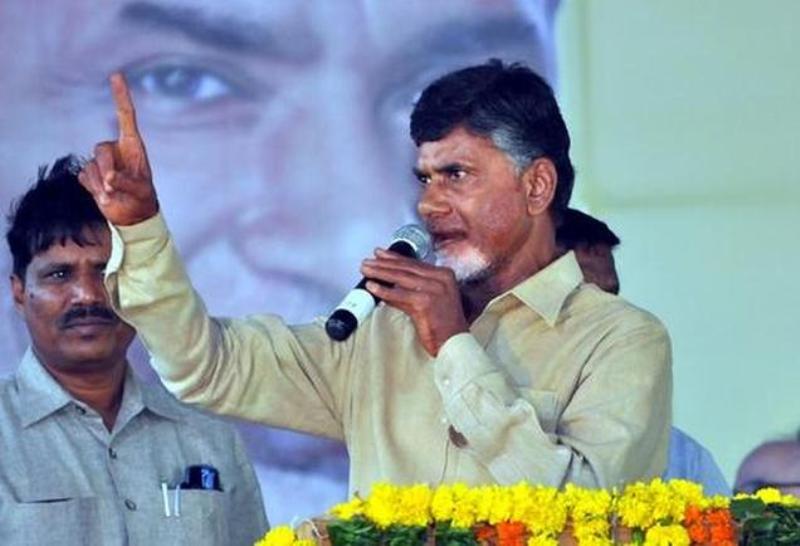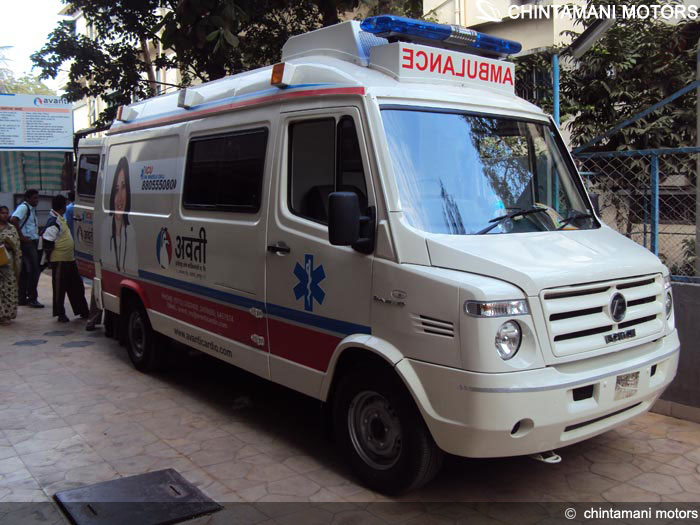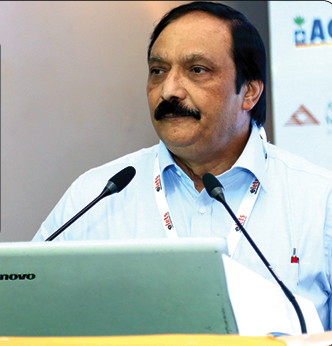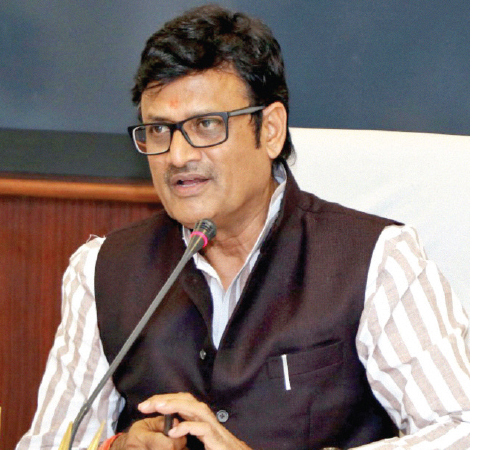Centre to Regulate Private, Public Clinics


As the kidney racket throws light on illegal clinics running across the country, the Centre issued a statement saying it would soon bring in a law to regulate both private and public clinics.
“The Clinical Establishment Act is before a standing committee of Parliament and would be soon introduced,” Union Health and Family Welfare Minister Anbumani Ramadoss said.
Under the act, all public and private clinics across the country will have to register themselves.

“All the clinics across the country should improve the quality and standard of the services,” Ramadoss said while inaugurating a Diagnostic Centre set up as a public private partnership venture between Hindustan Latex, a mini ratna enterprise under the Ministry of Health and Central Government Health Scheme (CGHS).
Ramadoss said his ministry wanted to provide quality care and health related services to the beneficiaries of CHGS.
HINDLABS is equipped with the most modern lab facility and will deliver reliable, accurate and quality diagnostic services to CGHS beneficiaries at CHGS rates. The same services will also be provided to patients outside the CGHS at affordable rates.
CGHS is one of the primary health care delivery networks of the Ministry of Health and Family welfare, which delivers economical and quality medical care facilities to Central government employees across the country.
The project, if successful, will be scaled up in the coming six months period in the national capital.
Budget Booster for Healthcare Industry

The recently announced Union Budget 2008 must have been music to the ears of healthcare service providers in the country. Taking cognizance of the tremendous potential of this rapidly growing sector and its impact on the society at large, Finance Minister, P Chidambaram doled out a five-year tax holiday for hospitals in tier II & III cities. Such a move is expected to trigger a surge of new healthcare facilities in non-metro cities/towns, which are currently in dire need of quality healthcare.
With a five year long tax-vacation, it might be an economical proposition for private players to spread beyond metro cities, and still remain profitable. At the same time, this will give a financial bandwidth for existing providers to revamp services and modernise their facilities.
Ripple effects of the Budget announcement was quite evident at the stock market, with healthcare majors gaining a handsome rise in stock prices over the day. While Fortis Healthcare seem to have gained the most with a stock appreciation of 7.4%, Wockhardt and Apollo also made their mark with an increase of 1.3% and 1.2% respectively.
Some of the other highlights for healthcare sector in the recent budget includes – INR 16,000 crore allocation for public health, 15% hike in outlay for NRHM, INR 30,000 insurance cover for BPL workers and INR 1,000 crore allocation for polio eradication in Bihar.
QCI-Max Seminar on Process Management & Globalisation for Indian Healthcare Industry


Quality Council of India (QCI) in association with Max Super Speciality Hospital, Saket, New Delhi recently organised a half-day seminar on Process Management and Globalisation of healthcare industry in India. Conducted by Shashi Madhok, VP – Quality, Robert Wood Jhonson, University Hospital, Hamilton, USA, this two-part presentation focused on important aspects of process management for healthcare outcome indicators and globalisation of healthcare with high standards of patient care.
With a marked eloquence and a lucid presentation style Ms Madhok brought to light some of the crucial aspects of process management in the first part of her talk, with special emphasis on issues such as key performance indicators, quality control measures, service enhancement, process standardisation and the like. The second session specifically discussed global market opportunities for the domestic industry and the need for adapting international best practices and standardisation of care delivery. Keeping the audience involved throughout her presentation, Ms Madhok brilliantly responded to questions from the floor, infusing fresh perspectives to conventional wisdom and industry knowledge. Most appreciable aspect of the seminar was perhaps the seamless contextualisation of a rich professional experience in the western world with situations at the domestic healthcare industry. A true learning experience!
Hinduja’s eye plan of medicity in Kolkata


The Hinduja group has evinced interest to set up a state-of-the-art medicity near Kolkata. The proposed medicity will house a medical college, a dental college, a nurses’ training college and a super-speciality hospital. This was announced by West Bengal’s commerce & industries minister Nirupam Sen.
Talking to newsmen Mr Sen said: “We met Hinduja group supremo Ashok P Hinduja at Mumbai, urging him to invest in West Bengal. Mr Hinduja expressed his interest to make a foray into the state’s health sector. He is keen to set up a medicity or a multi-speciality hospital in West Bengal. If we can provide 50 acres, then he is willing to set up a medicity. For a multi-speciality hospital, the land requirement will be much less.” The minister has already informed the state health department about the Hinduja group’s proposal.
In fact, the Hinduja group at the recently held World Economic Forum in Davos had indicated that it has firmed up plans to invest US$ 1 billion in India’s commercial healthcare industry by setting up specialty hospitals in several cities. The Hindujas are already present in the health care sector in India. They have set up P D Hinduja National Hospital & Medical Research Centre in Mumbai.
The state government has also urged the Hinduja group to make some investments in the proposed PCPIR at Haldia and adjoining areas (including Nayachara island). “Hindujas have already decided to set up a refinery somewhere in western India. We have urged them to set up a cracker unit at PCPIR.” said Sabyasachi Sen, the commerce and industries secretary, who was also present at the press conference.
Better healthcare key to good economic growth for India

India must improve its health care system to realise its economic potential and the country is well positioned to tackle challenges in the sector, says a report.
Furthermore, public-private collaboration is required for better insurance coverage. Widespread health education and better disease prevention could improve the health care system.
“The problems facing the system are large but not intractable, if business, government and civil society work together to solve them.”, said the report published by McKinsey Quarterly.
The report, titled “A Healthier Future for India”, pointed out that subsidising health care and insurance for the country’s poor people would be necessary to improve the system.
India is expected to become the most populous country by 2035 while it already has the youngest people – 20 per cent of the world’s people under 24 years of age.
According to the report, India has the privilege of learning from and avoiding, the costly errors of the advanced economies apart from having the opportunity to create new models for health care.
Moreover, increased availability of quality care, access to affordable health care services and awareness of the benefits of preventive measures are expected to help better the system.
The report also pointed out that lack of qualified medical personnel is a serious problem.
Clearer pharma policy soon: Union Minister of Chem & Fertilisers

Union Minister of Chemical and Fertilisers, Ram Vilas Paswan, recently said that the much-awaited pharma policy would be cleared by the Group of Ministers in its next meeting.
“I am sure that GoM would clear the pharma policy in its next meeting, the date for which is not yet decided but it will be held soon.” Paswan told reporters.
The GoM, headed by Agriculture Minister Sharad Pawar has held three meetings so far, but has not been able to come up with an amicable solution.
However, the minister didn’t give any further information about the changes and the amendment needed to the draft policy to overcome the differences. “It is up to the GoM to decide what changes they want to bring in the draft policy.” he said.
The Union Cabinet in January 2007 referred the draft pharma policy to the GoM after differences arose between the chemicals ministry and pharmaceutical industry over certain provisions, including price control.
Mobile telemedicine service soon in Andhra Pradesh

Andhra Pradesh (India) Chief Minister Y.S. Rajasekhara Reddy has announced that mobile clinics will tour villages and telemedicine would be introduced through the ‘104 service’ being implemented in the state via the public-private partnership mode.
Addressing a meeting of the AP branch of the Indian Medical Association, he urged the medical fraternity to join hands with the Government in its endeavour to provide improved medicare to the poor.
Dr. Reddy said the mobile clinics would daily visit two villages situated 3.5 km away from the primary health centre to check blood pressure, diabetes and other health parameters of people.
The Chief Minister announced that a bill to replace the recently promulgated ordinance providing protection to government and private doctors would be introduced in the ensuing budget session of the Assembly. On the plea to include common diseases under the Rajiv Aarogyasri scheme, he said it was a totally different scheme meant to benefit low income groups by covering 210 specific diseases. He promised to provide land to IMA for constructing buildings in Hyderabad, Vijayawada and Visakhapatnam.
Private institutions were involved since the Government hospitals were not in a position to conduct so many surgeries. S.N. Mishra, all-India IMA general secretary, and E. Ravinder Reddy, State IMA president, hailed the Government for promulgating the ordinance. Sangeeta Reddy, utive Director of Apollo Hospitals, was among those who spoke.
The draft policy, prepared by the Chemicals Ministry, has sought to expand the ambit of National List of Essential Medicines (NLEM) from 74 to 354 by bringing more drugs under price control. The proposal had evoked a sharp reaction from the industry which argues that the move would adversely affect research and development activities in India.
The National Pharmaceuticals Pricing Authority (NPPA), the watchdog of drug prices, had also earlier made a presentation to the GoM on the status of the pharma industry, price of drugs and the need for price control.
Reliance Wellness eyes INR 6000 cr revenue in 3 yrs

Reliance Retail’s tenth retail format, Reliance Wellness, a chain of beauty and wellness products, is looking at INR 6,000 crore revenues from its operations in the next three years. The company will have 1,200 stores by then.
The company has six wellness stores, including the 3,500 sq ft store it opened in Chembur, Mumbai, on Thursday and plans to open 150 stores by the end of 2008-09. For a 3,500 sq ft store, it employs 16 people and invests INR 80 lakh. They intend to hire 19,000 people and invest INR 900 crore in the wellness business.
The wellness stores have four broad categories such as health foods, personal care products, healthcare products and pharma products and sell nearly 8,000 items.
According to estimates, health and wellness is a INR 40,000 crore category and growing at nearly 15 per cent every year. Health and wellness products have a margin of 15 per cent to 30 per cent and sourcing them directly from manufacturers would increase the gross margins of the retailers, the sources said.
Symposium on “Emerging Therapies in Heart Failure” Organized by Escorts Heart Institute and Research Centre

Escorts Heart Institute and Research Centre Limited (EHIRCL) organized a symposium on ‘Emerging Therapies in Heart Failure’ on February 24, 2008 in New Delhi. Concerned over the rising cases of Heart Failure and lack of awareness about the factors leading to heart failure, doctors from across Delhi & NCR came together to discuss the latest technology available for its treatment. Eminent cardiac specialists from EHIRCL like Dr. T. S. Kler, Dr. V. K. Chopra, Dr. Peeyush Jain, Dr. Suman Bhandari, Dr. Aparna Jaswal, Dr. Nishith Chandra addressed the sessions of the symposium with case studies.
Dr. Roberto Ferrari, Director of the Centre of Cardiovascular Research, Gussago, Brescia and Dr. Inder S. Anand, Director, Heart Failure Programme. VA Hospital, Minneapolis and Secretary, World Heart Failure Society also addressed the sessions and discussed global trends in the field of Heart Failure.
Dr. T. S. Kler, utive Director, Escorts Heart Institute and Research Centre, said, “The rising number of heart failures can be treated if the symptoms are detected in patients at an early stage. Although there are medicines and devices available to help patients survive longer; patients should try to help themselves by making lifestyle changes such as stopping smoking and eating a healthy diet containing fruit, vegetables and fibre.”
Talking about the growing application of modern technology in treatment of Heart Failure, Dr. V. K. Chopra, Senior Consultant, Department of Cardiology, EHIRCL said, “Several heart assisting devices like pacemakers, ICDs etc have significantly helped heart failure patients live a longer and healthy life. We hope that researches and studies will make these devices accessible to a large number of people very soon.”
Gaps in rural healthcare facilities

Despite being one of the most developed states in the country, 93 per cent of hospital beds in Maharashtra are in urban areas, claimed an advocacy group which released a survey on health inequities recently.
The study, based on secondary data analysis done by Support for Advocacy and Training to Health Initiatives (SATHI) has found the rural population, women and persons from the backward class population do not have the same access to healthcare as others.
“The rural population, poorer sections, women, Scheduled Castes, Scheduled Tribes and Muslims bear a heavier burden of deprivation resulting in bad health. In addition, they have much worse access to health care,” said Magsasay award winning journalist P. Sainath , who released the report.
Other findings of the report, which is based on primary data obtained from reports which government bodies have come out with are – 32.6 per cent women have low body mass index compared to 24.9 per cent in men. The report claimed that 54 per cent of the SC/ST population in rural areas live below the poverty line. It claimed that many people have stopped using the health care system due to “privatisation”.
“Two hundred million people have stopped seeking medical attention as they cannot afford it. Sadly, we are emulating the US model of private health care rather than that of other successful public health systems world over,” said Sainath.
LIC’s Health Plus insurance policy under IRDA lens

Life Insurance Corporation of India (LIC) has launched its first long-term unit-linked health insurance policy called Health Plus, which will provide health cover for an entire family. The plan will have 3 components – hospital cash, major surgical benefits along with a ULIP component to meet domiciliary treatment-related expenses for insured members.
Hospital cash benefit is a daily benefit payable in case of hospitalisation and the maximum account can be between INR 250 and INR 2,500 for the principal insured. The maximum account for spouse/child is INR 1,500.
In case of hospitalisation in an ICU, the amount payable is double the eligible daily cash benefit. If the insured undergoes any major operation as mentioned in the policy, a lump-sum benefit, regardless of the actual costs incurred, will be payable.
But Health Plus has now run into trouble with insurance regulator IRDA. LIC officials had told reporters that the premiums paid under the scheme will be eligible for tax benefits under section 80D.
After reports of the launch of the LIC product and the tax benefit, IRDA wrote to LIC seeking clarification on the issue.
The portion of premium that belongs to the base health cover will be eligible for tax benefits under section 80D. The balance of the premium that goes towards the wealth earning or unit linked plan comes under section 80C.
According to LIC, however, the product was approved by the regulator as a health insurance product and therefore should be eligible for the same benefits.
Chandigarh launches telemedicine project

The Chandigarh Administration has launched a telemedicine project to provide critical healthcare advice and right treatment, thereby eliminating unnecessary travelling of patients for high quality medical services.
The project would enhance communication between Government Medical College and Hospital (GMCH) and Post Graduate Institute of Medical Education and Research (PGIMER) of Chandigarh for better patient management and health services.
Under the project, a state-of-art telemedicine facility will be available at GMCH. Realising the shortage of specialists in the Health Department not only in Chandigarh, but also all over the country, the GMCH would start providing the best care to the patients in this region through telemedicine. The Chandigarh Administration will expand this network and interconnect all medical facilities under it for seamless flow of patient related information for better implementation of national and local healthcare projects.
It would also result in faster dissemination of knowledge from centres of excellence to lesser hospitals, which would ultimately result in overall improvement in healthcare delivery.
This project will be a stepping stone which in future would lead to a more comprehensive all inclusive network for providing excellent healthcare to people of the region.
Be a part of Elets Collaborative Initiatives. Join Us for Upcoming Events and explore business opportunities. Like us on Facebook , connect with us on LinkedIn and follow us on Twitter , Instagram.












